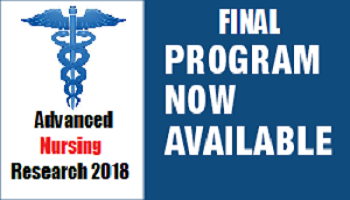
Leesuk Ferencsik
Adventist University of Health Sciences, USA
Title: The lived experience of nurses transitioning to electronic medical records usage: a phenomenological inquiry
Biography
Biography: Leesuk Ferencsik
Abstract
Background: One of the most pressing global issues in health care settings is patients’ safety. In an effort to decrease medical errors and improve the quality of patient care, many health care organizations have adopted an electronic medical record (EMR) system. However, to date, the lived experience of the nurses transitioning to EMR is not clearly understood.
Purpose: The purpose of this study was to explore the lived experience of nurses transitioning to EMR usage.
Philosophical Underpinnings: This qualitative study followed van Manen’s phenomenological perspectives under the naturalistic (constructivist) paradigm with the research question, what is the experience of nurses transitioning to electronic medical records (EMRs) usage?
Methods: A qualitative phenomenological methodology was used for this study. A purposive sample of 15 nurses who have experienced transitioning to the EMR usage was selected. Data collection occurred with in-depth, semi-structured interviews using open-ended questions. Data analysis was guided by Max van Manen’s (1990) phenomenological method, which includes describing, interpreting, textual writing and rewriting.
Results: Four core themes: doubting, struggling, accomplishing, and embracing emerged. Three subthemes: Balancing time between computer and patients and Increasing workloads and responsibility, which are subthemes of struggling, and leaving human interaction behind, a subtheme of accomplishing emerged from this qualitative, phenomenological investigation. These themes illuminated the lived experience of 15 nurses transitioning to EMR usage. Thomas Kuhn’s (1996) process of scientific inquiry provided a framework to gain a deeper understanding of this phenomenon.
Conclusions: This study explored the lived experience of nurses transitioning to EMR usage in hospital settings. The results of the inquiry highlighted the essence of participants’ experience by revealing their doubt about the EMR’s functionality, struggle with transitioning and using the new EMR system, accomplishment of successful transition to the EMR system, and finally acceptance of technology in their daily work practice.

